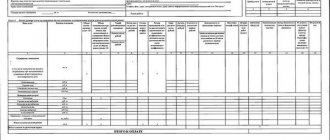March 03, 2021
One of the government measures to support the population in 2021 (compensation for expenses for housing and communal services) was subject to changes. The new rules did not in any way affect the procedure for obtaining a subsidy. However, low-income families may face various problems. To avoid troubles, it is recommended to understand the intricacies of the procedure in advance.
The legislative framework
The assignment of subsidies for housing and communal services is stated in two regulatory documents:
Housing Code of the Russian Federation, Art. 159 defines:
- grounds for assigning payment;
- requirements for persons wishing to receive a subsidy;
- authorities providing benefits.
PP No. 761 dated December 14, 2005 establishes:
- procedure for calculating subsidies;
- provision rules;
- features of the purpose of payments to certain categories of the population;
- cases of termination of payments.
Additional conditions and payment rules are determined by regional legislation and decrees.
Who is eligible for housing and communal services subsidies?
Categories of the population who can receive a subsidy to pay for housing and communal services:
- owners;
- employers;
- people occupying public housing.
Financial support is assigned if a person spends more than 22% of his salary on rent.
In a number of constituent entities of the Russian Federation, this permissible spending rate is lower: in the capital - 10%, in Kemerovo - 17%, St. Petersburg - 14%.
Another reason is that the area of the room should not be larger than the standard determined in the region.
For example, the standard of living space in Moscow: Standards for living space per person in Moscow
| Number of residents | Square |
| 1 tenant. | 33 sq. m. |
| 2 residents. | 42 sq. m. |
| 3 or more. | 18 sq. m. for each. |
If the living space does not meet the established standards for the region, then receiving a subsidy is impossible.
Who is entitled to housing and communal services benefits?
Both people renting housing and property owners, as well as citizens living in municipal apartments and houses, can receive a subsidy for housing and communal services through State Services. Financial compensation is awarded in the following cases:
- More than 22% of income goes to paying bills from housing and communal services. In some regions of the Russian Federation, the amount is different: for Moscow – 10%, for St. Petersburg – 14%, for Kemerovo – 17%.
- The area of the room does not exceed standard square footage per person.
- Large families, guardians with disabled children, single mothers.
Who is entitled to housing and communal services benefits?
For the latter, the possibility of receiving a subsidy is also calculated individually. In most cases, the state agrees and provides preferential conditions. The main thing is to correctly fill out and hand in the documents.
We recommend studying: How to obtain confirmation of government services
The following citizens do not have the opportunity to participate in the state support program:
- without Russian citizenship;
- in the absence of property rights to the premises and living there free of charge (this also includes an oral agreement not supported by documents);
- living in living space on the basis of a rental agreement with lifelong maintenance.
It is worth remembering that if citizens meet all the requirements, submit and re-register documents on time, they may also be left without a subsidy if they have debt for housing and communal services. Even a small unpaid amount can cause control services to fail.
Who is not eligible?
The following categories of the population are not eligible:
- persons who do not have Russian citizenship;
- persons who are not the owners of the premises, but occupy it free of charge (by oral agreement with the owner or on the basis of a free use agreement);
- citizens who have signed an annuity agreement with lifelong maintenance.
Eligible people may be turned away if they don't pay their rent bills on time. A subsidy for utility bills is not issued if homeowners have debt obligations to companies providing resources. Therefore, if there is even a small debt, before applying for a subsidy, it is necessary to pay off with the service provider company.
Debit card #Everything is possible from Rosbank
Apply now
What income can you qualify for a rent subsidy?
To find out whether a payment is due, you need to calculate the average budget of family members for six months and compare the resulting figure with monthly expenses for rent for a given period. Those whose expenses on receipts exceed the permissible norm - 22% of income (in some regions the norm is lower) can count on receiving funds.
When calculating the subsidy for utility bills, the authorities take into account the amount of the entire family income received, which includes:
- official salary;
- benefits and social support (both monthly and one-time payments);
- alimony payments;
- inheritance, if it is received in cash equivalent;
- profit received under contracts (if a person provides services as a private individual);
- interest on deposits;
- profit from the sale of real estate;
- profit from farming and gardening, etc.
When determining the level of income, the average salary level and the receipt of money from various funds, including benefits, pensions and scholarships, are taken into account. If, upon calculation, the amount turns out to be less than the subsistence level, you can request to be assigned the status of a low-income family. Please note that the cost of living in different parts of the country is different. This parameter changes every three months. If your income has increased during this period, you may be denied a new social status.
Subsidies for low-income families in 2021
On January 1, in Russia, the moratorium on disconnecting utility resources and charging fines and penalties for late payment of housing and communal services expired. It was introduced back in April as one of the anti-crisis measures - Russians could not pay for utilities without the risk of being left without electricity or gas and without the risk of receiving penalties or a fine. However, this did not exempt people from paying for services. So if you have debts, then hurry to pay them off, otherwise you will have to pay penalties, or even lose resources.
The non-application procedure for receiving subsidies for housing and communal services is extended until the end of the year. This decision was made by the government due to the complications of the situation with coronavirus. Accordingly, people who have the right to benefits do not yet need to contact social security authorities, write applications and confirm their income.
— If the subsidy period expires between October 1 and December 31, then the person will be able to receive state support in the same amount for the next six months. There is no need to submit any applications or documents, ” explained Artyom Korostelev, a member of the Russian Lawyers’ Association.
How the amounts and rules for receiving subsidies will change from January 1, 2021
Starting next year, recipients of subsidies will receive two more innovations. First: the amount of payments will change. True, the exact amounts are not yet known. Second: the recipient of the subsidies will no longer have to prove that he has no debts on utility bills. Thus, the procedure for receiving payments will become much simpler.
— The fact is that people who have debts for housing and communal services cannot receive subsidies. A certificate of no debt is issued by management companies. In the past, many controversial situations arose. Management companies may have provided false or inaccurate data. Because of this, problems arose with the assignment of payments. From January 1, 2021, the situation will change. Regional executive authorities will receive information about the presence of debt from the state housing and communal services information system independently, ” noted Artyom Korostelev.
Honored Lawyer of Russia Ivan Solovyov explained that benefits and subsidies for utility bills are two different things. Benefits are provided to a certain category of citizens. Subsidies are paid to a wider range of people: owners, tenants, people occupying municipal housing. True, provided that a person or family spends more than 22% of their income on rent.
It is worth noting that each region has its own standards. They may be lower than 22%. For example, in Moscow you can receive a subsidy if more than 10% of the family’s total income is spent on utility bills. As a rule, such a support measure helps save several thousand rubles a month.
— To understand whether you can count on a subsidy, you need to calculate the average budget of family members for six months. Then the resulting figure must be compared with monthly expenses for rent during this time. It is important to note that when calculating the subsidy for utility bills, all income received is taken into account. This is not only the official salary. For example, benefits and one-time payments, alimony, inheritance, if it is received in cash equivalent, interest on deposits, profit from the sale of real estate and much more are taken into account, ” noted Ivan Solovyov.
What income is not taken into account?
Not all income will be taken into account when calculating income. What doesn't count:
- State social assistance. Moreover, it will not be taken into account both in kind and in the form of money.
- Payments for health or life insurance, as well as expenses in accordance with the decision of the institution of the state medical and social examination service.
- Expenses related to social protection of disabled people.
- Previously assigned subsidies for housing and communal services.
- Paid alimony is deducted from income.
- Income that a citizen receives in the form of unemployment benefits if he is declared unemployed in the manner established by law.
How is income calculated when applying for utility payment benefits?
How is income calculated when applying for utility payment benefits?
Citizens can independently calculate whether they are entitled to a housing subsidy through State Services. The main basis is the income of the residents. It is necessary to add up your salary income for the last six months and subtract what percentage of it was spent on reimbursement of housing and communal services. If it is equal to or higher than 22% (it is necessary to clarify the indicator for a specific region), you can count on a subsidy.
When calculating the total profit of residents, it is important not to forget to take into account all positions of possible profit, as well as existing benefits:
- official salary;
- benefits (one-time and permanent);
- alimony received;
- inheritance (if it was received in monetary terms);
- profit issued under a service agreement from a private owner;
- profit on deposits (in percentage terms);
- profit after the sale of real estate;
- monetary profit from farming, etc.
The income level is calculated from the average salary and other income (payments, benefits, scholarships). If the resulting amount is less than the subsistence level, the state is obliged to provide social support, including subsidies for utility bills. The family is assigned low-income status. But this indicator is individual in each region and it can change every 3 months. If income increases, the housing subsidy through State Services will be canceled.
The following income items are not taken into account when calculating average income:
- state social assistance (in monetary and other material equivalent);
- insurance payments;
- benefits for caring for a disabled person;
- unemployment subsidies;
- previously assigned benefits for utility bills.
Compensations for housing and communal services are paid within six months after their legal recognition. After this, citizens need to re-certify the accuracy of the data if their financial situation remains at the same level.
Amounts and validity periods of payments
Funds are paid within 6 months after appointment. After this period, beneficiaries can again apply for compensation if their financial situation still meets the requirements.
The amount of compensation depends on tariffs, regional requirements for allowable expenses for housing and communal services and the area of the premises.
When calculating the amount of benefits, the following are taken into account:
- square meters;
- expenses for water, electricity, gas and other services;
- number of persons registered in the apartment;
- Family PM.
The calculation is made by the authorities using a special program where all data about the applicant is entered. The calculator instantly shows the amount of the monthly subsidy.
Who is taken into account in the family when calculating need?
When assigning a subsidy, it is also taken into account what percentage of total income goes to pay for utilities. At the federal level, it is legislated that this amount should not exceed 22%. But regional authorities can, at their discretion, further reduce this value. The calculation is applied to the family's total income.
Usually, income is calculated for 6 months, but it is necessary that all able-bodied family members work or register and receive unemployment benefits.
Family composition is a rather complex issue. For example, if you need to find out the right to receive child benefits, then only children and their parents are taken into account. And if you need to establish the status of a low-income family, then you can take into account all close relatives who live in the same territory.
Who is included in the family when calculating total income:
- spouses;
- adoptive parents and parents of minor children;
- the children themselves, born and adopted, under 18 years of age.
It does not matter where they are registered and live.
The Russian Housing Code defines family composition as:
- home owner;
- his parents and children;
- spouse);
- other relatives and disabled dependents in exceptional cases, who are registered and live on the territory, if the owner has moved them into his house as a family member.
List of required documents
You must document your right to receive subsidized payments. For this you will need:
- Passports of all family members who have reached the age of majority and birth certificates of those who are not yet 18 years old. Originals and copies are required.
- A copy of the marriage or divorce certificate.
- Certificate of family income. Form – 2-NDFL.
- A document confirming the family’s need to expand their living space.
- A copy or original of the work book. Any other document confirming membership in a preferential category of citizens is also suitable, if there are grounds for this.
- Extract from the house register.
- A copy of the document permitting individual construction.
- A copy of the permission to use the land on which the construction process will take place.
- An estimate that indicates all consumables for construction and their prices.
- Technical documents:
- a diagram of the organization of the land plot together with the construction plan, agreed upon with the local authorities who issued the building permit;
- a project for a future home, containing its full characteristics.
How to receive compensation for housing and communal services
Registration procedure:
- Collection of papers for compensation for housing and communal services.
- Writing an application (the application form will be issued by the social protection authority or the MFC), you can also download it from the MFC or another website.
- Handling of papers to the authority issuing the subsidy.
Sample application for housing and communal services subsidy
How to get a subsidy to pay for housing and communal services
The procedure for applying for a subsidy to pay for housing and communal services involves going through several stages:
- Collection of papers for compensation.
- Filling out an application.
- Transfer of documents to the authorized authority.
Until March 2021, there is an automatic extension of compensation for housing and communal services. If the benefit is terminated during the specified period, then no supporting documents are needed to extend it: payments will be automatically extended for another 6-month period. The subsidy amount will remain the same.
To receive a subsidy for housing and communal services, you must collect a set of documents, which includes:
- statement;
- passport;
- SNILS;
- certificate of family composition;
- children's birth certificates;
- bank account details for transferring the subsidy.
- documents confirming the right to own real estate or rent;
- certificates of income of members (2-NDFL certificates, tax returns, etc.).
Typically, the amount of income is confirmed for 6 months prior to applying for a subsidy. This must be taken into account when obtaining a 2-NDFL certificate.
The absence of an official place of work is grounds for refusal to assign a subsidy, unless the applicant is registered in the prescribed manner with the Employment Center as unemployed. But in some cases, valid reasons for temporary absence from work are accepted. These are, for example, pregnancy, the presence of a disabled child or the status of a large family, or full-time education. These facts must be documented.
For this purpose, a certificate is attached to the general set of documents:
- about the lack of scholarships for full-time students;
- from school about completing training at the age of 16-18 years;
- from work about lack of salary indicating the reason;
- from the antenatal clinic about being registered for pregnancy, etc.
In July 2021, the Government adopted Resolution No. 1130, according to which citizens are relieved of the obligation to provide documents confirming payment for housing and utilities when applying for a subsidy. Now the authorized bodies will receive the necessary information from the Housing Information System. The amendments came into force in January 2021 and changed the Rules for providing subsidies for housing and utilities.
Before the amendments were adopted, citizens could apply for a subsidy only after confirming the absence of debts for housing and communal services or with a debt restructuring agreement signed with suppliers.
To apply for a subsidy for housing and communal services, you must contact:
- to social protection authorities;
- in the MFC;
- through the State Services portal.
The application can be submitted in person or remotely. Some regions have their own specifics when issuing subsidies. Thus, in Moscow, citizens can use the services of the City Subsidy Center or submit an application on the mayor’s website.
You should apply for a subsidy before the date of your next utility payment.
The registration of the subsidy itself takes no more than an hour. It will take no more than 10 working days to make a decision on providing state support measures to the authorized body. The subsidy will be transferred to the user’s personal card or in cash through the Russian Post.
Funds are paid within 6 months after the grant is awarded. When this period expires, beneficiaries can again apply for an extension of state support measures if their financial situation allows them to be issued.
Documents for applying for housing and communal services subsidies in 2021
What you will need:
- Statement.
- Certificate on the number of registered persons.
- Documents confirming the identity of everyone registered in the apartment: passports and birth certificates (if there are children under 14 years old).
- Copies of SNILS.
- Paper confirming the basis for living in the living space: rental agreement, certificate of ownership.
- 2NDFL for 6 months.
- Last month's rent check.
If a non-working, able-bodied person is registered in the apartment, then he needs to confirm the absence of wages and other payments. In this case, additional documents will be required for housing and communal services subsidies:
- For students - a document from the educational institution about non-receipt of a scholarship.
- For schoolchildren of working age – a document confirming their studies.
- For non-workers and non-students - a document confirming the lack of receipt of unemployment payments, a copy of the work book, a certificate from the Employment Center.
If the person registered in the apartment is under long-term treatment, in custody or wanted, then this will also need to be documented.
Unemployed women caring for children or disabled people will also need to prove their lack of income if they do not receive care benefits or other social benefits.
Is it possible to apply remotely?
You can apply for a subsidy remotely through the State Services portal:
- First you will need to register and identify yourself.
- Having created an account on State Services, you need to select the “Benefits and Allowances” section in the catalog and go to.
- The next step is filling out the questionnaire and sending it for consideration.
- After the application is processed by the authorities, a notification of an invitation to apply for a subsidy will be sent to your email and personal account.
- On the appointed day, you must appear at the authority with originals and copies of the documents specified in the application.
Applying for a subsidy through the website will require visiting the authority only once - on the day the original documents are submitted.
How to get benefits for housing and communal services?
for social protection of the population is in charge of processing benefits . Documents can be submitted through an intermediary organization - MFC .
The procedure consists of 3 stages:
- Gather a set of required papers.
- Write an appeal that takes the form of an application.
- Appear at the department that issues the subsidy.
Required documents:
- Official statement. The state has high requirements for filling out, so all data is entered by the applicant himself, and the form is issued by employees of the government department. A sample can be viewed here [Document 1].
- Certificate of family composition.
- Basic documents of all persons registered on the premises (passports, birth certificates, etc.).
- SNILS of the applicant.
- Any official document giving grounds to live in the declared residential area (rental agreement, certificate of ownership, etc.).
- 2-NDFL for the past six months.
- Receipts/cheques for housing and communal services for the past month.
Receipts of payment and a document confirming citizenship may be submitted in the form of copies without an original comparison.
Unemployed family members are also required to confirm the fact of lack of income. The following documents are provided:
- students - a certificate from the educational institution about non-payment of the scholarship;
- for schoolchildren, they take a certificate from the school about full-time education;
- for unemployed capable persons - an extract from the employment center and a photocopy of the work book.
In individual cases, the owner of the living space will have to provide additional papers for registered but not living people:
- for a person who is wanted or missing (a police certificate);
- for a family member serving a sentence (certificate from a correctional institution);
- for a family member undergoing long-term treatment (certificate/extract from a medical organization).
Calculation formula
The subsidy is calculated using the formula:
SKU x number of persons – MDR/100 x D = amount of compensation.
- SKU – cost of housing and communal services;
- MDR/100 is the maximum allowable amount of spending on rent.
- D – total income.
Example: a working family of two people, family income is 30,000 rubles, of which 7,000 goes to pay bills for housing and communal services. Calculation: 7000 x 2 – 0.22 x 30000 = 7,400 rubles. In this case, the amount of the subsidy exceeds the monthly expenses for housing and communal services, so this family will be assigned a 100% subsidy.
Debit card All inclusive from Fora-Bank
Apply now
Subsidies for housing and communal services for pensioners
People of retirement age can receive a subsidy regardless of the area of the premises and other factors if they:
- have the status of a hero of the Soviet Union;
- are incompetent according to medical opinion;
- took part in hostilities and WWII;
- eliminated the consequences of accidents at nuclear power plants;
- are a close relative of a serviceman killed as a result of hostilities;
- were prisoners of a concentration camp.
They are entitled to compensation equal to half or the entire amount of expenses for services.
A number of Russian regions have introduced their own list of beneficiaries and additional conditions for receiving subsidies for utility services.
Please note that if you change your place of residence, increase your income, or develop rent arrears, the subsidy will be terminated.
Payments for gasification
In addition to benefits for the construction of a private house, there are subsidized payments for its gasification.
Bringing gas to a private home is a rather labor-intensive and costly process.
The total cost of bringing blue fuel into the house and completing all the necessary documentation can reach 700 thousand rubles.
But even for such large sums the state provides citizens with benefits. However, these subsidies are not available at the federal level.
Regional authorities take on this burden. The subsidy is a reimbursement of the costs of bringing gas to the house.
To apply for a subsidy, you need to contact the local social security authorities, providing the required package of documents (confirming the installation of gas pipes to the house and the preferential category). It is provided only once.
The right to receive a gas subsidy in a private home:
- veterans of the Great Patriotic War;
- disabled people of 1st and 2nd degree (about housing subsidies and benefits for disabled people is written here);
- labor veterans;
- heroes of Russia and the Soviet Union;
- victims of the Chernobyl disaster;
- large families (read about what subsidies large families can receive here).
The amount of payments depends on the cost of installing gas equipment and is half the cost of the work, but cannot exceed 20 thousand rubles.
What to do if a subsidy is refused?
Subsidies are mainly used by families with minimal incomes - large families, pensioners, single mothers and the disabled. But sometimes even they are refused.
Due to changes in 2021, the social protection service is collecting information about family members. They request the data they need, check the applicant and his family.
First of all, those who re-apply for a subsidy are checked. This assistance is provided for a maximum of 6 months, but after that you can ask for help again. The second time, fewer documents will be requested, but they will be checked much more thoroughly.
Particular attention is paid to persons who:
- do not have a regular income and job;
- have a constantly changing income (they often change jobs);
- They declare utility costs amounting to 40% of their income - often such citizens hide their real income.
They can refuse if a citizen:
- deceives, hides income;
- cheated when receiving the first subsidy;
- provides false documents;
- has debts for housing and communal services;
- does not have permanent residence.
Also canceled if:
- regional standards or cost of living have changed;
- family composition or place of residence has changed but was not reported;
- a citizen has moved to another city - he must reapply for a local subsidy.
It remains to figure out what to do if the authorities refuse a subsidy. Usually the reasons for refusal are reported immediately. If the reason for the refusal is simple (for example, incorrectly collected documents), then you can try to collect them again and submit them.
If the reason is falsification, then the false information should be corrected with real information. If there are missing documents or they are past their expiration date, correct everything and submit again.
When they refuse without reason or unlawfully, it is worth drawing up a complaint and submitting it to the arbitration court at your place of residence. You need to prepare for the fact that you will need to prove your right with documents.
Is the income of persons who are registered but do not live in the apartment taken into account?
Yes, if these are the children or parents of the property owner.
How is the subsidy calculated if the apartment has several owners?
The subsidy can be provided in the amount of the share that is assigned to the citizen applying for the subsidy. If all owners are adults and eligible for assistance, you can simply apply at the same time to receive the subsidy.
Can the unemployed apply for a subsidy?
No. According to the law, only those citizens who are officially employed or are on the labor exchange have the right to assistance. Those who do not work for a valid reason can also submit documents:
- is on maternity leave;
- cares for a seriously ill relative;
- serving in the Army;
- is in prison.
Is it possible to apply for a subsidy if the owner of the apartment is a minor?
There are certain rules according to which you can receive a subsidy. In accordance with them, the subsidy becomes available to the owners of any residential premises, taking into account the persons who live with them.
According to Article 64 of the Family Code, a minor has legal representatives - parents or guardians. Their task is to protect the rights and interests of their wards in any relationship with the outside world, including legal entities and individuals.
Accordingly, if a child turns out to be the owner of an apartment or house, then he can receive a subsidy taking into account the people living with him. The package of documents that will be required to assign a subsidy must be submitted to the Department of Social Protection of the Population. This can be done by either parent or guardian.









